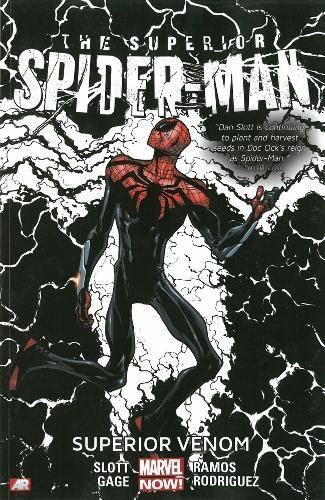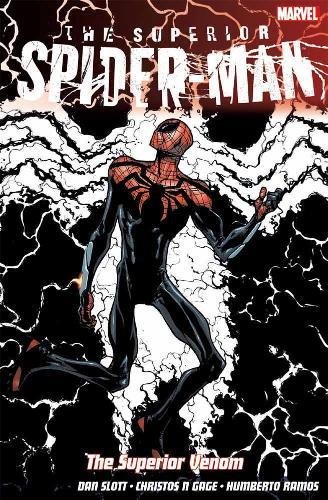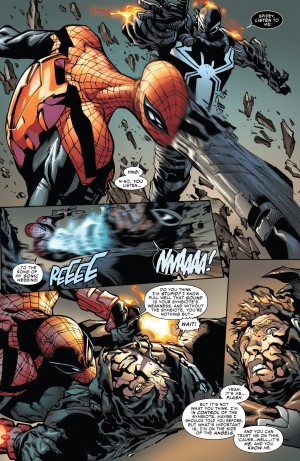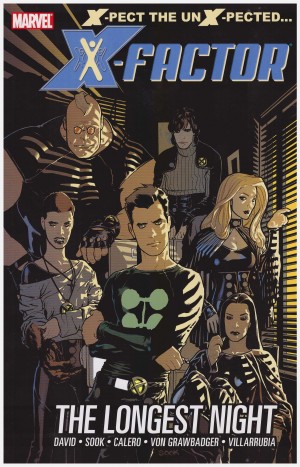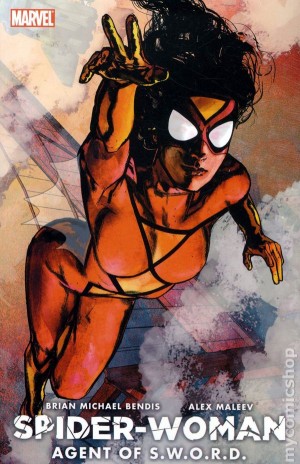Review by Karl Verhoven
There have been moments during Superior Spider-Man, and will be again before the end of this book, spurring a debate about the means justifying the ends, and whether Doctor Octopus as Spider-Man goes too far in dealing with threats. The interlude separating this volume from the events of Necessary Evil sees Spider-Man face the demonic presence of Blackout, whose method of operation is to threaten the friends and relatives of any target. It’s written by Christos Gage, who supplies the dialogue over Dan Slott’s plot for the remaining content, and while a perfectly acceptable superhero story, it doesn’t have the jaw-dropping plot moments Slott regularly manages to dredge up.
Yet at the start of the Venom episodes it appears Slott himself is heading into predictable territory with a standard conflict between Spider-Man and Venom, but we should know better. Two constants throughout the series have been Octavius’ massive ego, one that’s only breached by a single person, and the determination of that ego to ensure he’s the best Spider-Man can be. In doing this he’s crossed lines on several occasions, and does so again on assessing he can improve his effectiveness still further. This time, however, he may be wrong. It leads into a second conflict with the Avengers, who’ve had their suspicions about Spider-Man for a while, and for the first time in the series we’re presented with Octavius at full aggressive mode no longer considering he has to hold back.
In A Troubled Mind Doctor Octopus ensured he’d not be plagued any further by a subconscious conscience. For his purposes it’s been a good decision overall, but Slott cleverly plays with this by introducing characters known to the readers and who should be known to Spider-Man, about whom Octavius knows nothing. One is Venom. Flash Thompson has been one of Spider-Man’s biggest boosters since the earliest days of the character. “It’s like you don’t really know me at all” exclaims Venom just after avoiding what was intended as an execution. Meanwhile, the erasure of that conscience has consequences.
Due to the circumstances, that Humberto Ramos twists Spider-Man into some distinctively odd shapes matters less in Superior Venom than it has in previous books. Also due to those circumstances it’s often hard to make out exactly what’s happening in some panels, yet that’s not poor storytelling, it’s cinematic. Were the constantly morphing Venom symbiote appearing in front of our eyes any form of clarity would be a bonus. It’s very much a contrast with the earlier, more delicate cartooning of Javier Rodriguez and some nice pages late on from Marcos Martin.
Sub-plots are an essential element of any successful Spider-Man series, and Slott keeps those bubbling nicely. It appears one tame worm is on the verge of turning, another supporting character undergoes a tragic transformation, and the Green Goblin’s machinations also merit watching. They’ll come to fruition in the following Goblin Nation. A surprising plot element is the genuine care Octavius has for Anna Marconi, which provide a necessary softening for an otherwise rarely sympathetic character. However, as the final chapter shows, that may be on the verge of changing.
The entire content is also available in hardcover as volume three of Superior Spider-Man, within the Superior Spider-Man Omnibus, and Superior Spider-Man: The Complete Collection Vol. 2.
